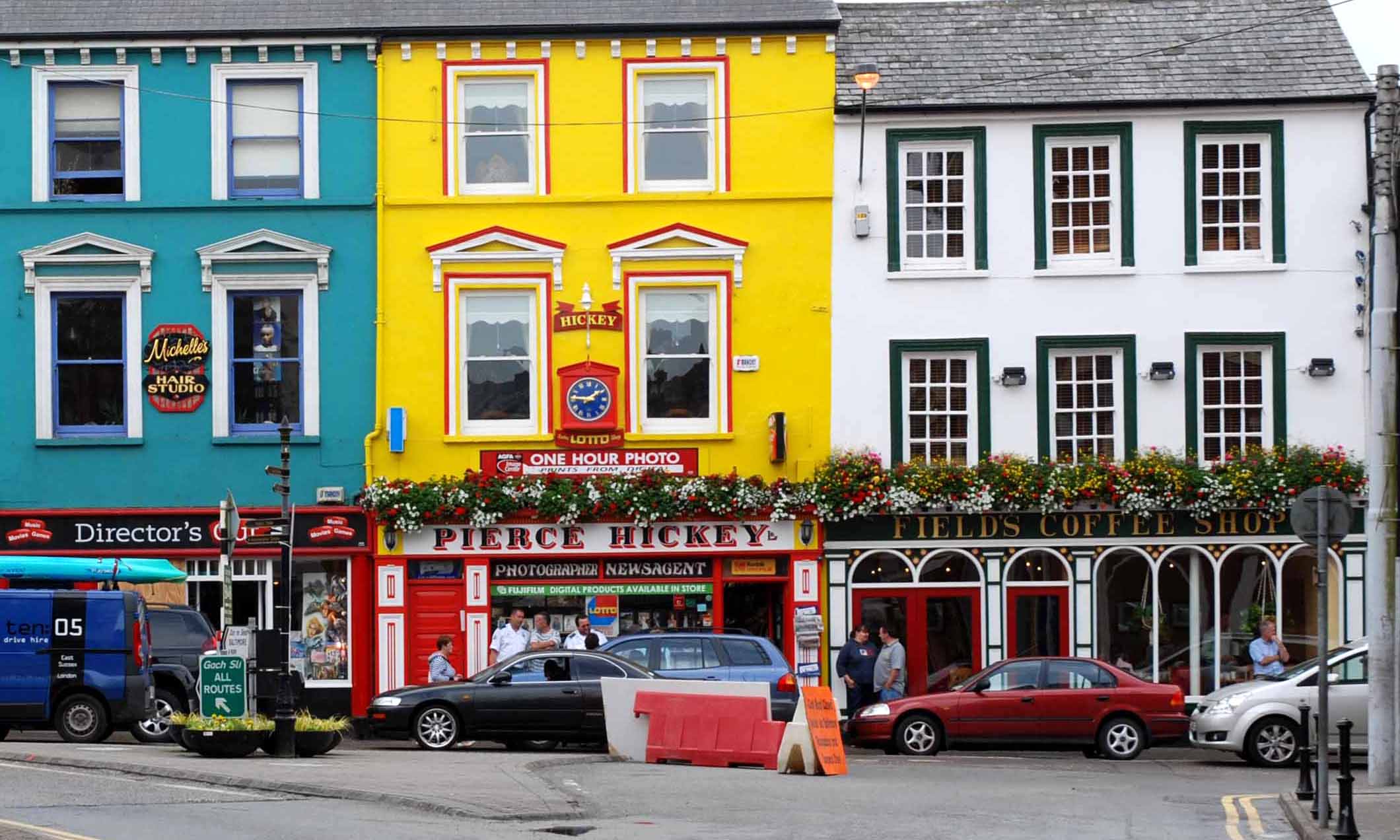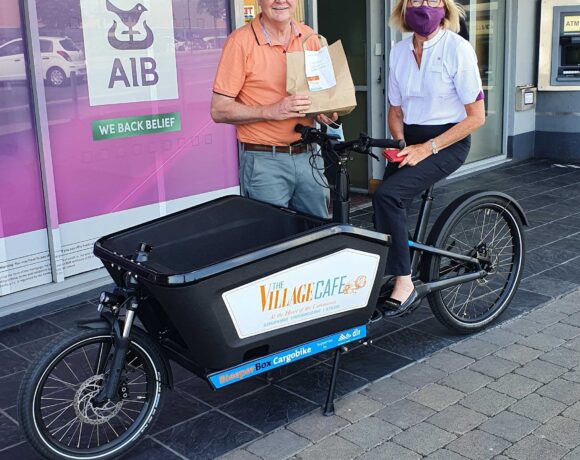In recent years Ireland has been growing in its reputation as the ‘digital capital of Europe’. It’s not hard to see why: since 2010 there has been a 23% rise in the number of people employed in science and technology, since 2000 there has been an 80% rise. Ireland is home to the headquarters of some of the biggest tech companies in the world today including Google and Facebook, as well as other born on the web giants such as Dropbox, Twitter and LinkedIn. Even the more established players like Accenture, IBM and Oracle are busy ramping up their cloud presence here.
However, to call Ireland the ‘digital capital of Europe’ isn’t entirely accurate: it projects the notion that tech companies are dispersed across all four provinces, when in fact they are almost exclusively located in Dublin. It is Dublin that has positioned Ireland as one of Europe’s leading tech hubs, and as one moves away from the capital they will see less and less evidence of Ireland’s technology boom. Of course, Ireland’s other cities are not excluded. Cork has become a significant technological location, hosting Apple, EMC, Big Fish Games and McAfee. And Galway is home to companies such as Avaya, Cisco and HP. Tech companies flock to these locations because there they have the resources and infrastructure required to hold pace in such a competitive sector. Rural Ireland just hasn’t been able to offer the same draw. Or at least this has been the case up until now.
This year will see the National Broadband Plan getting underway. Up to €500 million will be used to bring high speed broadband to 300,000 homes and 100,000 businesses by 2020. Up to 85% of premises in Ireland will have access to high speed broadband 2018. The plan will not only bring rural Ireland up to speed with its urban centres but it will create a digital infrastructure that could ultimately change the definition of ‘rural’ itself. With ubiquitous connectivity, the threshold between urban and rural will suddenly not be such a deterrent for the tech industry. This was the thinking behind a new digital hub set to open in the West Cork town of Skibbereen.
Ludgate Hub, like it’s urban predecessor in Dublin, the Digital Hub, will be there to provide the resources necessary to innovators and entrepreneurs who want to call West Cork their home. Located in the refurbished Oldd Bakery building, the Ludgate Hub will provide 10,000 square foot of space, hosting up to 75 desks, training and meeting room space, a state of the art telepresence suite, and canteen and break out facilities. Most importantly, the Ludgate Hub will provide 1000MB of uncontested internet connection suitable for any digital enabled business.
Skibereen is not new to innovation. It was the birthplace of celebrated astronomer, Agnes Mary Clarke, in 1842. It was also home to Percy Lusgate, who designed the first portable computer in 1907. He lived only 100 meters from where the hub is located now, and was the man from which the Ludgate Hub takes its name. One can imagine that with the new hub in place it is only a matter of time before more innovators become associated with with the town of Skibereen.
Callum Donnelly, the Corporate Development Officer for Ludgate@Skibbereen spoke to us about how the project got started, the concept of tech innovation in rural areas, and how rural communities will benefit from having their own hub.
Ludgate@Skibbereen is Ireland’s first rural digital hub – can you tell us a little bit about how the project initially came about, and what its goals and objectives are for the future?
The Ludgate Group came about in November of 2014, as a call to action in revitalising the town of Skibbereen via a sustainable digital outlook. The establishment of the Ludgate Digital Hub will facilitate up to 75 people in a coworking office environment promoting creativity and innovation in a rural setting. Ludgate@Skibbereen’s long term objective is to facilitate the creation of 500 direct jobs and 1000 indirect jobs in Skibbereen and the wider West Cork area. A digital outlook focused upon external demand and the global market will lead to a greater degree of export potential and an aggregated injection to the local economy.
Most people will tend to associate digital hubs and digital start-ups in general with urban areas – do you think that looking past preconceptions like this is an important step to take in rejuvenating rural economies, and boosting the general health of the national economy?
The establishment of rural digital hubs will rejuvenate rural Ireland’s economy. The beauty of the digital economy is that it is not confined to a geographical area. The market is truly global and very competitive, rural Ireland is home to very creative and enterprising people. The facilitation of innovation in rural areas can provide young people with a future that does not entail migration to urban centres for career success. The further development of regional hubs by supporting towns and villages will in the long-term provide a platform for entrepreneurs to start and grow businesses, the establishment and upgrade of High Speed Broadband services will balance the economy and is / will be the driving force for job growth in rural areas.
Ludgate offers high-speed internet facilities for existing businesses – what kind of benefits does it offer to entrepreneurs and new start-ups?
High speed broadband connectivity in the Ireland of 2016 is essential! For Digital/Tech start-ups the benefits should be reclassified as essential, poor connectivity will stall development and growth; without the broadband services provided within the Hub a start-up will be forced to relocate to an urban centre. Existing enterprises can now begin to innovate to a level that has not been seen in Ireland. With encouragement and a small bit of advice a traditional business can use connectivity to diversify. The benefits are only limited by imagination and willingness to be creative. For instance, a service based enterprise may now be able to interact with clients in Dublin or Donegal via video conferencing. Broadband can open up new revenue streams for all business regardless of whether they are a traditional industry or a tech start up.
Minister for Communications Alex White has said that rural broadband is the most important issue for rural Ireland in terms of economic infrastructure. Do you think that enough is being done to improve the quality of rural broadband in Ireland, or have we a long way to go yet?
Yes, I believe the Government are working to solve Ireland’s broadband connectivity across rural Ireland; the National Broadband Plan is in its early stages of implementation. Both Public and Private Investment in high-speed broadband services are occurring throughout Ireland, however at an aggregate level of service provision we are still in the early stages of the roll-out.
Can you tell me a little about Skibbereen itself? What kind of challenges has it faced in recent years, and what advantages does it have as the location for a digital hub?
Skibbereen is the most Southerly town and has traditionally been known as a market town with a population of around 2500 people, the large hinterland of Skibbereen is circa 15,000 people. Like most Irish towns the recessionary period from 2008 has significantly reduced revenues generated through the town, this reduction can be attributed to the rapid decline in the purchasing power of the domestic economy. The vast majority of towns in Ireland are reliant upon domestic demand and this reliance has decimated rural Ireland.
The advantages of having a digital hub is three-fold:
1. Start ups and digitally based businesses locating within the Hub will be externally focused, the majority of digitally based businesses are not reliant upon the domestic economy, and instead they focus upon foreign markets.
2. With external focus from digitally based start-ups Ireland’s balance of trade remains in a positive situation. In short, more money is coming into the country than leaking from the economy.
3. This injection from a positive balance of trade will impact on the local economy. More money in circulation within the economy will benefit retailers and service providers. Statistically, for every digital job created 1.5 additional jobs are created elsewhere in the economy.
Do you think that Ludgate@Skibbereen offers an example to other rural communities and small towns which are looking for innovative solutions to the economic problems lingering from the downturn?
Yes, this platform can be replicated in rural towns and to date we have had a number of towns enquiring about the project and they are now forming teams to implement something similar in their town. Rural Ireland is home to very creative people: a hub which can facilitate innovation and enterprise can provide a platform for entrepreneurs. However, high speed broadband services are an essential requirement for 2016 and into the future.
What kind of role do think local councils can play in promoting and supporting innovative initiatives like Ludgate?
A balance between public and private is essential. We believe that the private sector should initiate projects like the Ludgate Hub but councils need to provide support once initiative is off the ground. Once an ambitious job creation platform like a digital hub is in motion the council and central governments need to support it in some way, shape or form. In the long run, projects like the Ludgate Hub benefit the entire community as well as the promotion and facilitation of enterprise.













